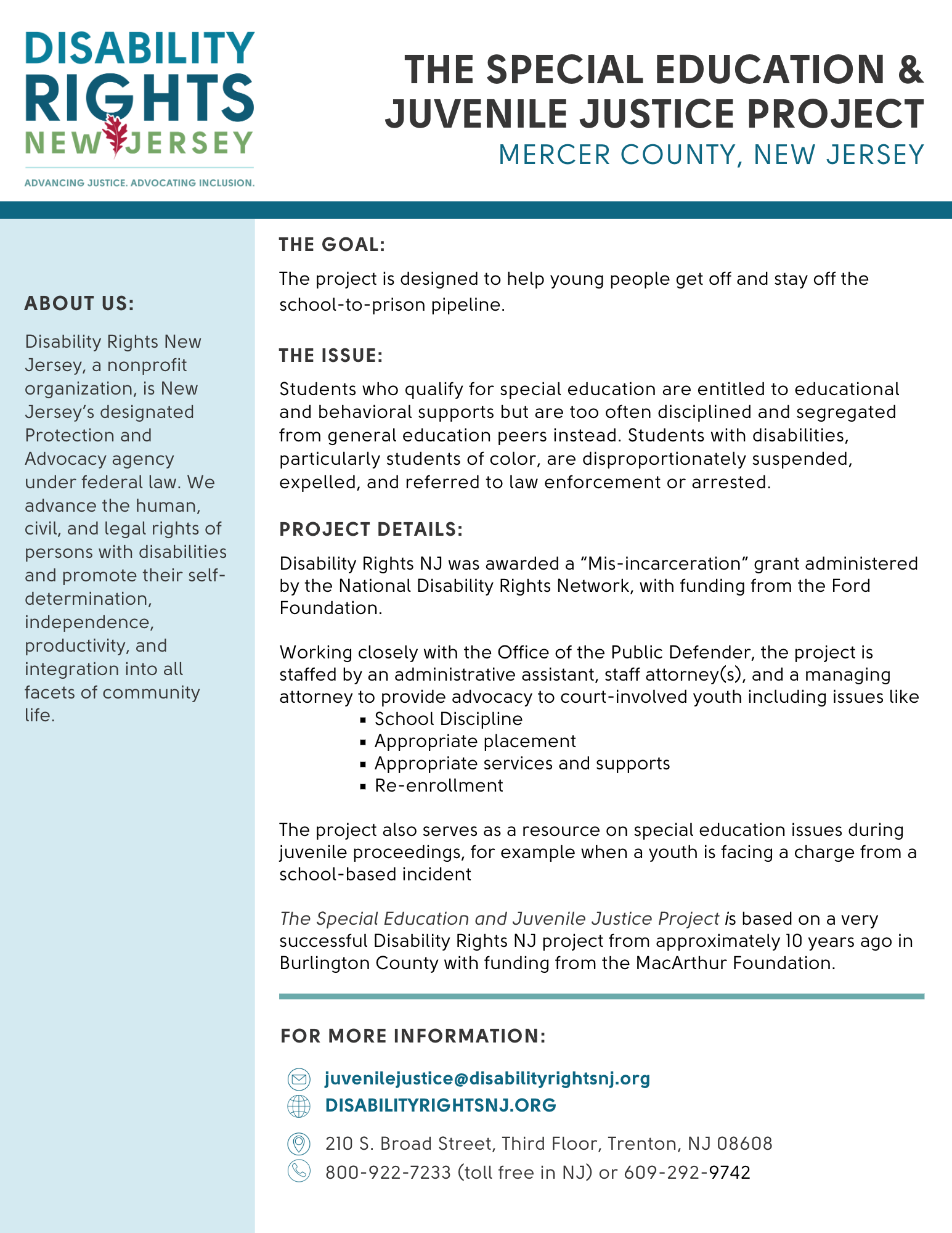Youth Justice
How We Help
Disability Rights NJ attorneys have a regular presence in juvenile court to provide information on disability and disability-related services. We also accept referrals from the public defenders, prosecutors, probation officers, and the Court to ensure students with disabilities get the appropriate services regardless of whether they are placed in detention, detention alternatives, or are going back home. Our advocacy includes a range of services from advice on how students and families can advocate for themselves, to full representation at due process hearings in certain circumstances. This project currently serves Mercer County and Essex County.
Understanding the Issue
Youth with disabilities, especially Black boys with disabilities, are most vulnerable to being propelled along the School-to-Prison Pipeline: disciplined more harshly, referred to law enforcement, subject to school-based arrest, and incarcerated. Over 13% of students with disabilities receive out-of-school suspension compared with 6% of students without disabilities. For Black male high school students with disabilities approximately one-third are subjected to school discipline. Moreover, students with disabilities represent a quarter of students arrested and referred to law enforcement.
The higher rate of school discipline does not reflect a higher rate of misbehavior by students with disabilities, but reflects instead the impact of school policies, practices and leadership. Each suspension increases a child’s odds of becoming delinquent, abusing substances, getting involved with gangs, and getting caught up in the juvenile justice system.
Youth with disabilities are especially vulnerable to the impact of secure confinement, which can leave them traumatized and permanently damaged. The rate of suicide in juvenile justice facilities is approximately four times greater than in the general population. Moreover, juvenile incarceration greatly increases the likelihood of further involvement with the criminal justice system.
The large, prison-like juvenile correctional facilities in New Jersey should be closed. The majority of incarcerated juveniles, including the many with disabilities, should be held accountable while receiving developmentally appropriate programming and services in smaller facilities, closer to home and family support, that will prepare them for a productive adult life rather than a return-trip to criminal justice system.
Are you a law student interested in gaining practical experience advocating for justice-impacted youth?
Disability Rights NJ invites rising third-year law students and law clerks with a deep commitment to fighting for youth justice and disability equality to apply for a sponsorship opportunity to work with us as a public interest legal fellow.
